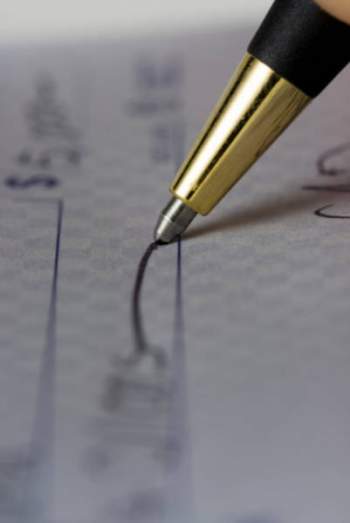
Ensure That Your Checks Are Honored!

A check is only good insofar as it is honored by the drawee. If the drawee does not honor checks drawn from it, then it would not matter if the drawer or the payee have both otherwise performed their roles in the transaction. Fortunately, with a check, the banks that play the role of drawees will generally honor checks drawn on them, as to do otherwise would be a breach of trust with the customers and would violate the banks' primary duties in acting as the customers' agents. There are some instances, however, in which a check might not be honored due to circumstances surrounding the check and the status of the account from which it is being drawn.
In general, if a drawee or a bank does not honor checks drawn by a particular drawer, then there is a reason for it, for example, the drawer not having enough money in his or her account to support any check. This is an instance in which the drawer is said to have non-sufficient funds, which would then allow the drawee to not honor checks drawn by that drawer.
Beyond simply not honoring a check drawn for funds which are not in the account, the drawee or bank might institute other penalties, including some kind of penalty fee. The payee, as well, will likely learn not to trust a check written by that drawer.
More and more nowadays banks and drawees have begun to honor checks which draw on accounts with insufficient funds simply in order to charge overdraft fees. Overdraft fees allow for banks to make a fair amount of profit on an unsupported check, as they charge the drawer a significant penalty for having overdrawn his or her account.
Sometimes, a drawee will not honor checks because they were made with faulty or incorrect information. This is not a terribly common circumstance, as many incorrect elements on a check are the results of mistakes as opposed to wrongdoing and can simply be corrected by the proper party or might not even matter.
For instance, an incorrect date on a check might not actually matter as to whether or not the bank honors that check. Additionally, a misspelled name would likely not actually affect the check's payability; in such an instance, the payee could simply correct the name and sign with the correct spelling or could even sign with the incorrect spelling.
But the drawee might not honor checks that are, for instance, clearly altered in some significant or fraudulent fashion, or the drawee might not honor checks with a clearly forged signature. These instances are relatively rare and are particularly serious.
In other instances, however, a drawee might not honor checks because that drawee is, in itself, party to a scam of some kind. If the drawee is a fraudulent party, then the fact that it does not honor checks might be an important clue for the drawer or the payee in discovering such fraud and should be investigated at the earliest opportunity. It is possible that the drawee had a perfectly reasonable explanation for why it refused to honor the checks in question, but in the event that it does not have such an explanation, discovering so earlier is vitally important.